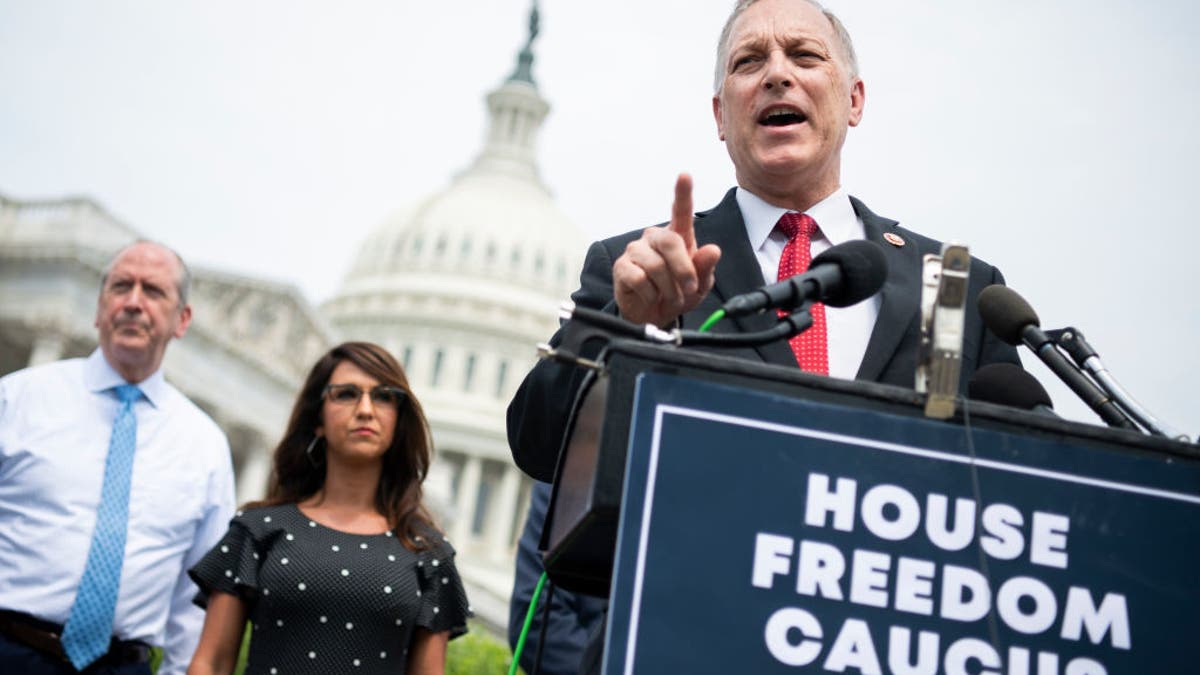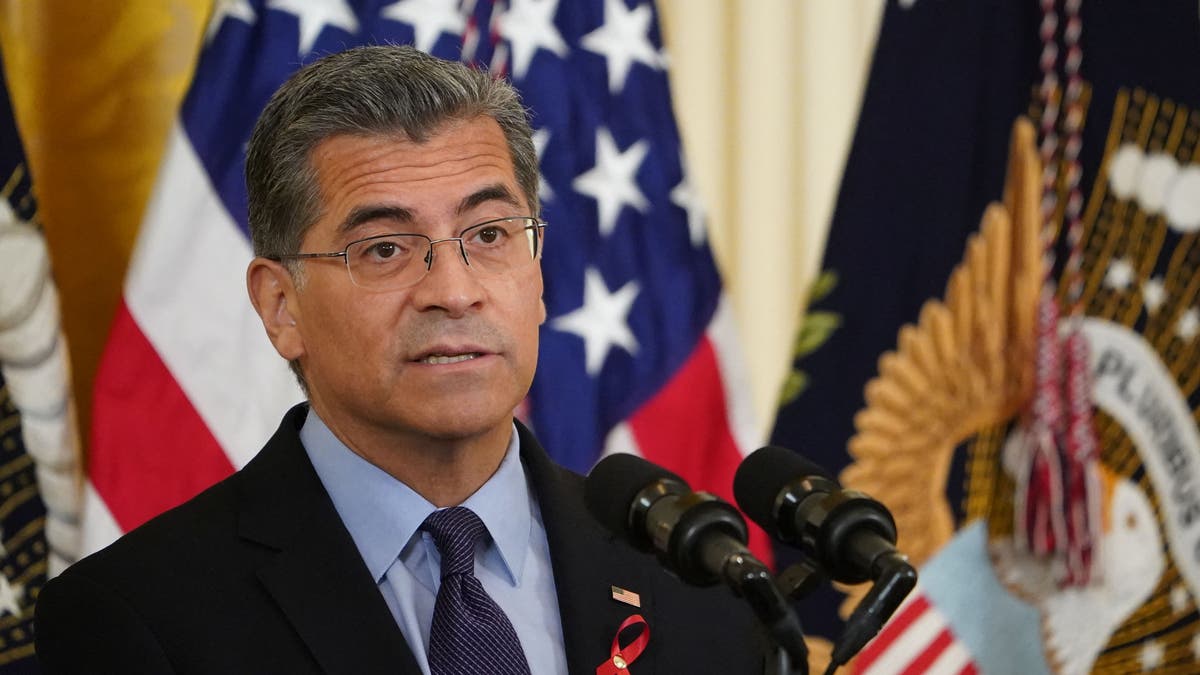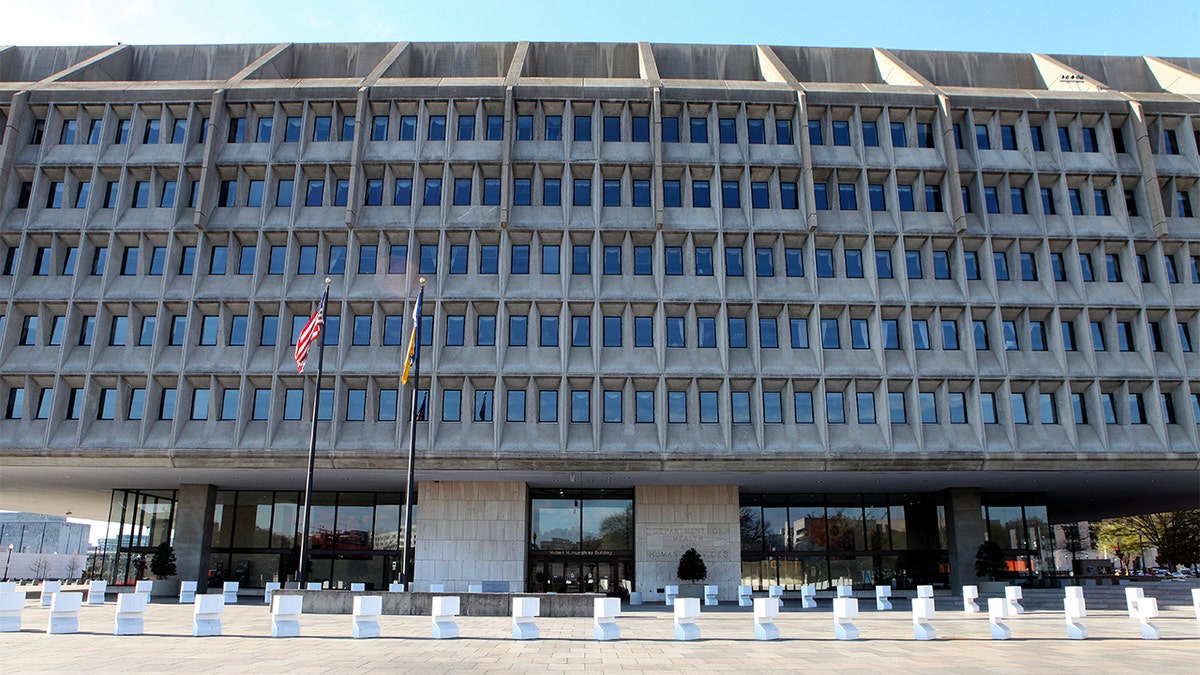Fox News Flash top headlines for December 16
Fox News Flash top headlines are here. Check out what's clicking on Foxnews.com.
FIRST ON FOX: More than 20 House Republicans are demanding the Health and Human Services (HHS) department restore Trump-era religious liberty enforcement measures it revoked last month.
A letter on the issue signed by 22 House Republicans comes amid a slew of decisions rolling back the former administration's decisions within the Office of Civil Rights (OCR). In November, the Biden administration announced it would repeal OCR's authority to investigate potential violations of the First Amendment and Religious Freedom Restoration Act (RFRA).
"President Biden's Office for Civil Rights is attacking religious liberty," Rep. Andy Biggs, R-Ariz., said in a statement provided to Fox News.

Reps. Andy Biggs, R-Ariz., right; Lauren Boebert, R-Colo.; and Dan Bishop, R-N.C., conduct a news conference outside the Capitol with members of the House Freedom Caucus July 29, 2021. (Tom Williams/CQ-Roll Call)
"The right of each person to worship according to their conscience is one of our nation’s founding principles. Why is the Biden administration implementing policies that weaken religious liberty protections? … Secretary Becerra should be building on the steps taken by the Trump administration to ensure the department is fully complying with its constitutional and statutory obligations instead of weakening the department’s ability to protect religious liberties."
BIDEN'S HHS REVOKES CERTAIN FAITH-BASED EXEMPTIONS, ROLLS BACK RELIGIOUS LIBERTY ENFORCEMENT
The Republicans' letter states, in part: "The decision to withdraw OCR's ability to ensure that HHS maintains compliance with RFRA is a direct affront to Americans' religious liberty. It is clear that you have no interest in protecting or upholding the conscience rights of Americans. Your November 24 decision to rescind OCR's authority to protect Americans' conscience rights will only further hamstring OCR's ability to carry out its mission and enforce federal civil rights law."

Health and Human Services Secretary Xavier Becerra speaks during a World AIDS Day commemoration in the East Room of the White House in Washington, D.C., Dec. 1, 2021. (MANDEL NGAN/AFP)
Prior to Biggs' letter, 100 GOP lawmakers also reintroduced conscience protection legislation in response to Becerra's track record. In the Senate, Josh Hawley, R-Mo., also sent a letter requesting information on why the memo proposed making changes without a "formal rollout" as well as which third-party resources and groups consulted on the development of the decision to rescind RFRA authority. Another letter came from Sen. Tim Scott, R-S.C., and Rep. Ralph Norman, R-S.C., last week.
HHS also revoked certain waivers for faith-based organizations that, among other things, refuse to serve same-sex couples. That prompted a lawsuit from Holston United Methodist Home for Children earlier this month.
HHS did not respond to Fox News' request for comment. The department has defended its recent moves by arguing that the prior administration granted OCR too much authority and suggesting it didn't do enough to protect against discrimination.
Becerra's November filing in the Federal Register echoes his department's memo in arguing that authority should be dispersed among HHS' various agencies.

The Department Of Health and Human Services' Hubert H. Humphrey Building April 11, 2015, in Washington, D.C. (Raymond Boyd/Getty Images) (Getty Images)
"Department components, in consultation with OGC [Office of General Counsel], have the responsibility, and are best positioned, to evaluate RFRA-based requests for exemptions, waivers and modifications of program requirements in the programs they operate or oversee," the filing states.
A draft memo, obtained by Fox News, suggests the prior administration expanded RFRA authority in a way that hurt equity.
CLICK HERE TO GET THE FOX NEWS APP
Under "Noteworthy Elements about Equity," the memo states, "While nothing in RFRA legally restricts an agency to work proactively to address a complainant’s (or ‘would be’ complainant’s) religious needs or rights, there is a serious concern that such an approach broadens the effect of RFRA in a way that may not be legally required and while causing significant detriment to civil rights and public health protections."
It argues that "the prior Administration took an expansive view of the use of RFRA that resulted in negative impacts for underserved communities."





